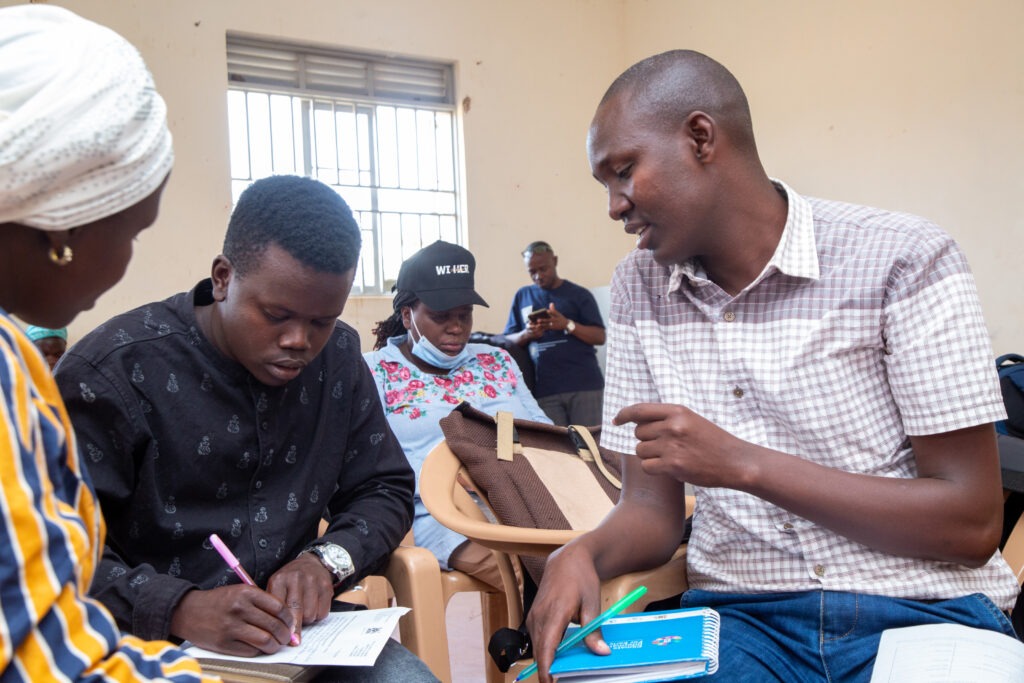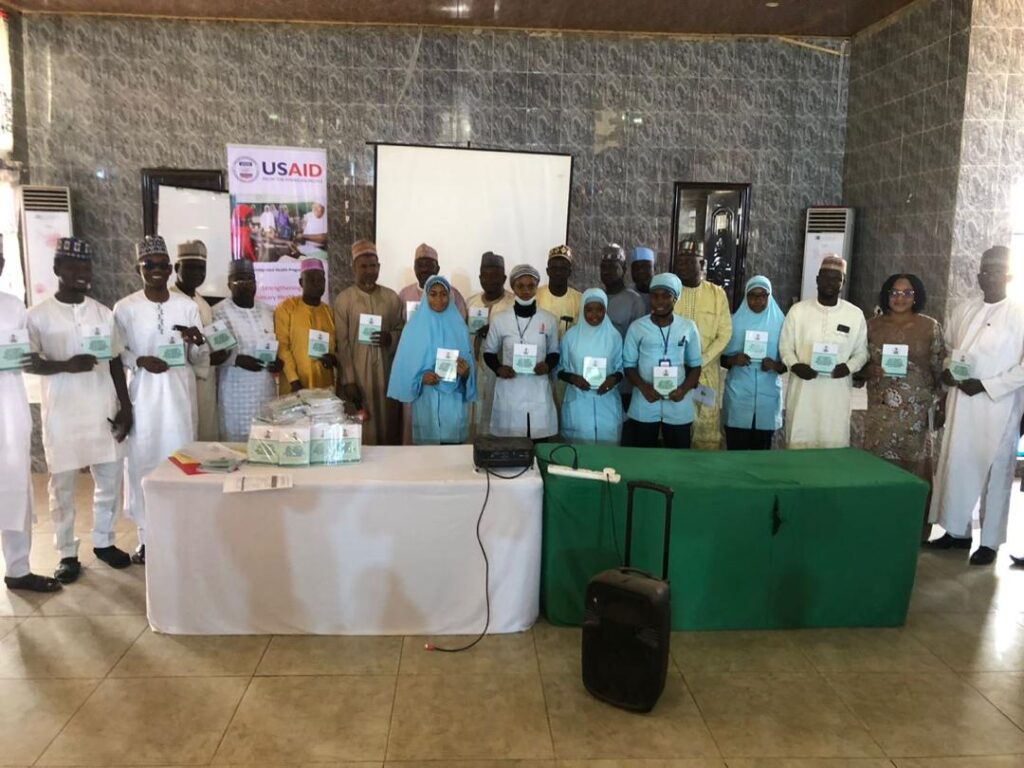Fostering Innovation and Learning: Our Approach to Capacity Strengthening

Capacity strengthening is the crux of our work, as it drives our approaches and results. We strengthen capacity through the equitable partnerships we have built with governments, partners, communities, and individuals we serve and support all over the world across various contexts and sectors, ranging from health to environmental conservation.
Capacity strengthening for us is a stepwise journey that starts with recognizing that our local partners, including in the U.S., are active players and agents of the change they want to see; our role is to optimize their existing capacities to support them in actualizing the change. We refer to this as capacity optimization.
Our capacity optimization approach at WI-HER is built upon the iDARE™ methodology, providing a robust framework for our work and backed by proven tools, expertise, and tangible results. Here’s how our global team optimizes capacity:
- Strategic Collaboration: iDARE cultivates strategic collaboration, allowing us to work closely with diverse stakeholders. We leverage and enhance existing capacities and interests, fostering partnerships that support local actors and drive sustainable results.
- Locally-Led Change and Scale-Up: Our methodology enables individuals in all contexts and sectors to be in the driver’s seat of innovation. We prioritize learning and scaling up initiatives to achieve equitable, locally-driven outcomes.
- Core Learning Approach: We emphasize continuous learning throughout the use of iDARE as we transition into capacity optimization. This approach ensures that our interventions yield more equitable and sustainable results.
- Technical Training Sessions: We conduct technical training sessions for organizations and institutions, equipping them with the skills to effectively consider gender, equity, and social inclusion (GESI) and reach and include vulnerable groups in the solutions they design and implement. These sessions also support the development and testing of tools with a gender-responsive lens.
- Co-Creation of Policies and Tools: Working hand-in-hand with various stakeholders, we co-create policies and tools. This collaborative effort enhances the effectiveness of locally-led social behavior change innovations.
By fostering the adoption of our iDARE methodology, we not only optimize capacities but also foster a dynamic environment for innovation, learning, and impactful collaboration. Our goal is to create lasting change that is effective and deeply rooted in the needs and strengths of the local communities we serve.
Paving the Path Forward Through Proven Expertise

At WI-HER, our passion for mobilizing communities and fostering positive change is reflected in our multifaceted technical expertise and service areas. Over the years, our work has spanned multiple domains, showcasing innovation and results-driven approaches to technical implementation, strategic assistance and consulting, and institutional support.
Capacity Strengthening In Action
Learn more about the impact of our work through detailed accounts and success stories, and explore our innovative approaches to optimizing the efforts of communities across the world:
- Supporting the training of health workers in Nigeria to improve gender-based violence (GBV) survivor-centered care.
- Optimizing the capacity of community influencers to create change in communities and reinventing how behavior change programming is done by adding a GESI lens to community-led mobilization efforts, for example, in NTD programming in Uganda.
- Working with governments and local organizations through a Grants under Contract (GUC) mechanism to respond to and prevent gender-based violence
- Conducting GESI assessments to understand what factors – especially ones related to gender, social status, and disability – impact Neglected Tropical Disease (NTD) treatment efforts.
- Developing a gender equity and social inclusion (GESI) training guide to reach vulnerable populations in Tanzania.
- Addressing environmental conservation and gender-based risk within the relationship to land use and conservation projects in Fiji.
- Strengthening leadership skills and workplace culture at the U.S. Section of the International Boundary and Water Commission, United States and Mexico through capacity building.
Capacity strengthening and optimization succeed when all partners work in coordination and collaboration, with local stakeholders in the driver’s seat of developing solutions. As such, we prioritize this crucial process for the future of community-led sustainable development.